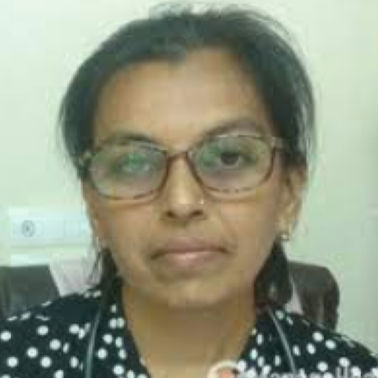After Hysterectomy Pain In Pelvic
Experiencing pelvic pain after your hysterectomy? Understand the potential causes, from normal healing to adhesions or nerve issues. Find out when to seek medical advice and explore options for relief.

Written by Dr.Sonia Bhatt
Last updated on 9th Jul, 2025

Introduction
A hysterectomy is a common surgical procedure where the uterus (womb) is removed. While it can provide relief from conditions like fibroids, endometriosis, or heavy bleeding, some women experience pelvic pain after the surgery. If you're dealing with discomfort posthysterectomy, know that you're not alone, and there are ways to manage it effectively.
Why Does Pelvic Pain Occur After Hysterectomy?
Pelvic pain after a hysterectomy can happen for several reasons:
1. Healing Process – Your body needs time to recover after surgery. Swelling, scar tissue formation, and nerve irritation can cause temporary pain.
2. Surgical Technique – The type of hysterectomy (abdominal, vaginal, or laparoscopic) can influence recovery and pain levels.
3. Adhesions – Scar tissue may form between organs, leading to discomfort.
4. Nerve Damage – Sometimes, nerves in the pelvic area may get irritated during surgery, causing lingering pain.
5. Infection or Complications – Rarely, infections or other surgical complications can lead to persistent pain.
6. Underlying Conditions – If you had chronic pelvic pain before surgery (e.g., endometriosis), some discomfort may continue.
Common Symptoms of PostHysterectomy Pelvic Pain
Common symptoms of post hysterectomy pelvic pain are:
Aching or sharp pain in the lower abdomen or pelvis
Pain during movement, sitting, or physical activity
Discomfort during intercourse (if ovaries are retained)
Bowel or bladder changes (due to pelvic muscle tightness)
Persistent fatigue and tenderness
Consult Top Gynaecologists
How to Manage Pelvic Pain After Hysterectomy
Ways to manage pelvic pain after hysterectomy are:
1. Give Yourself Time to Heal
Recovery takes weeks to months. Avoid heavy lifting, strenuous exercise, or prolonged sitting in the first few weeks.
2. Pain Relief Methods
Medications – Over the counter pain relievers (like ibuprofen) can help. If pain is severe, consult your doctor for prescription options.
Heat Therapy – A warm compress or heating pad can ease muscle tension.
Pelvic Floor Therapy – A physical therapist can teach exercises to relax tight pelvic muscles.
3. Gentle Movement & Exercise
Start with short walks to improve circulation.
Pelvic floor exercises (Kegels) can help strengthen muscles, but avoid overdoing them if they cause pain.
Yoga or stretching can reduce stiffness.
4. Dietary Adjustments
Stay hydrated to prevent constipation, which can worsen pelvic pain.
Eat fiberrich foods (fruits, vegetables, whole grains) to support digestion.
Avoid inflammatory foods (processed foods, excess sugar, caffeine).
5. Emotional & Mental Wellbeing
Rest and relaxation are crucial—stress can make pain feel worse.
Support groups or counseling can help if you're feeling anxious or depressed.
When to See a Doctor?
Consult your doctor if:
Pain worsens or doesn’t improve after several weeks.
You notice signs of infection (fever, unusual discharge, redness).
Pain interferes with daily life (sleep, work, mobility).
Can Pelvic Pain Be Prevented?
While some discomfort is normal, you can reduce risks by:
Choosing a skilled surgeon experienced in minimally invasive techniques.
Following postop care instructions carefully.
Gradually returning to activities instead of rushing recovery.
Final Thoughts
Pelvic pain after a hysterectomy is often temporary, but if it persists, don’t hesitate to seek help. With proper care, most women find relief and return to their normal lives. If you're experiencing ongoing discomfort, consider booking a consultation with a specialist at Apollo 24|7 for personalized advice and support.
Consult Top Gynaecologists
Consult Top Gynaecologists

Dr Swatika Kumari
Obstetrician and Gynaecologist
19 Years • MBBS, DGO, DNB Obstetrics & Gynaecology
Nashik
Apollo 24|7 Clinic - Maharashtra, Nashik

Dr. Priyanka Surisetty
Obstetrician and Gynaecologist
8 Years • MBBS, DGO
Visakhapatnam
Apollo 24|7 Clinic - Andhra Pradesh, Visakhapatnam

Dr. Shailaja L
Obstetrician and Gynaecologist
16 Years • MBBS, MS
Bangalore
Apollo 24|7 Clinic - Karnataka, Bangalore

Dr. Asha Rani Singh
Obstetrician and Gynaecologist
24 Years • MBBS DGO
Delhi
Dr Asha Rani Singh Clinic, Delhi

Dr. Mona Yadav
Obstetrician and Gynaecologist
19 Years • MBBS, MD (Obstetrics & Gynaecology)
Dombivli
Nulife multispeciality, Dombivli
Consult Top Gynaecologists

Dr Swatika Kumari
Obstetrician and Gynaecologist
19 Years • MBBS, DGO, DNB Obstetrics & Gynaecology
Nashik
Apollo 24|7 Clinic - Maharashtra, Nashik

Dr. Priyanka Surisetty
Obstetrician and Gynaecologist
8 Years • MBBS, DGO
Visakhapatnam
Apollo 24|7 Clinic - Andhra Pradesh, Visakhapatnam

Dr. Shailaja L
Obstetrician and Gynaecologist
16 Years • MBBS, MS
Bangalore
Apollo 24|7 Clinic - Karnataka, Bangalore

Dr. Asha Rani Singh
Obstetrician and Gynaecologist
24 Years • MBBS DGO
Delhi
Dr Asha Rani Singh Clinic, Delhi

Dr. Mona Yadav
Obstetrician and Gynaecologist
19 Years • MBBS, MD (Obstetrics & Gynaecology)
Dombivli
Nulife multispeciality, Dombivli



